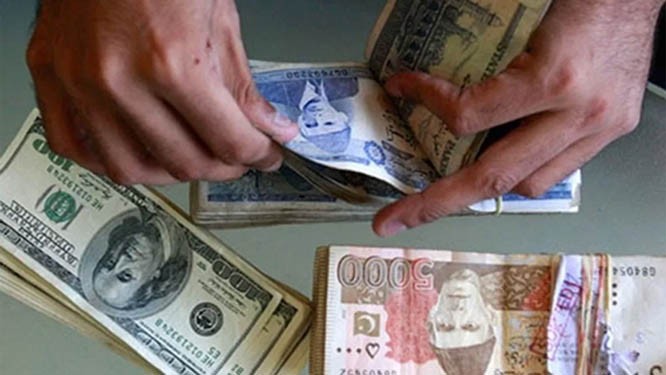
Now that the election is over, the PTI government must face up to the economic challenges

While Prime Minister Imran Khan has enumerated the economic challenges, he has yet to present a comprehensive workout plan on the economy. His main emphasis is on bringing back the looted money stashed abroad, seeking moral and financial support of overseas Pakistanis, increasing foreign investment, boosting exports and curtailing imports, creating jobs, increasing tax revenues through reform and so on.
For many, it is more of a wish-list than real targets in the absence of strategies about how to achieve these.
Some PTI supporters believe the government is looking for the right people for the right job. They appreciate initiatives like establishing task forces for planning and execution of various economic plans and appointment of certain advisers and department heads.
Against this backdrop, it is important to look at the economic challenges facing the government. Certainly time is not a luxury here.
Foreign reserves are hardly enough to cover two months’ imports, the foreign payment liability hovers around $2 billion a month, trade gap has swelled drastically due to excessive imports, especially from China, circular debt in the power sector has reached Rs1.178 trillion, Pak rupee has been devalued four times since December 2017 and state-owned enterprises are in debt and facing huge losses. Besides, the manufacturing industry is suffering due to cheap imports and smuggled goods leading to laying off of workers in the industrial sector.
Senior journalist at Dawn, Khurram Husain, thinks the government is still hooked to the campaign rhetoric and does not seem to be aware of the urgency of the situation. He says, "In the past, Pakistan has gone for IMF bailouts when foreign reserves had fallen to the value worth one-month imports or so." This situation, he adds, "is fast approaching but there is no clue as to how the required foreign reserves will be managed".
The government officials are holding meetings on a regular basis but at the end they send press releases that talk only about vows to end corruption, engage overseas Pakistanis, attract foreign investments, etc. It’s more about the mindset and hardly about the plans and strategies.
Husain says, "The government should instead be working on how to reduce trade deficit and revisit Pakistan’s Free Trade Agreements (FTAs) with Turkey and China." He terms it a matter of grave concern that the trade deficit between Pakistan and China has increased by tens of billions of dollars in the favour of the latter. "It is important to go for increase in exports to China as well."
Another cornerstone of the PTI government’s economic reform agenda is tax reform and increase in direct taxes which are just 11 per cent of the total tax collection. At the moment, only one per cent of the people pay income tax. If one goes by the announcements made so far, the PTI government plans to make the Federal Board of Revenue (FBR) autonomous and free from political influence. Besides, it intends to separate tax policy and administration from each other and increase the tax net.
The government’s recent appointment of an officer from Pakistan Administration Services (PAS) as chairman of FBR has led to protests by officers from Inland Revenue Service (IRS), who want their head to be from their own service group.
Economist Kaiser Bengali says the country’s economy in its current state is not capable of bearing any further burden of taxes. "Two-thirds of taxes come from the industry which is too burdened to absorb any further burden. The government can only make moral appeals to the people to pay taxes for their country’s benefit which will not work."
He promises to comment on the economic reforms after six months, as "there’s nothing tangible at the moment to comment on".
Khurram Husain thinks the PTI will have to go for legislation on economic reforms but "this seems difficult as the PTI government neither has enough strength in the assembly nor enjoys good relations with the opposition".
He says though the economy is growing at above five per cent, it will not continue to if the PTI government decides to stabilise it rather than focus on its growth. "Government expenditures on mega development projects lead to increase in growth rate and the present government might not have enough resource to focus on this."
"Recently, the textile industry has given a presentation to the Advisor and Commerce Minister, Razzak Dawood, who will discuss it with his team and hopefully come out with a package for the textile industry," says Anis ul Haq, Secretary All Pakistan Textile Mills Association (APTMA).
Haq says they have demanded an enabling environment, end to red-tape, affordable energy prices, consistent and long-term government policies, facilitation for investors, smooth supply of raw materials, boost to the agricultural sector that feeds industry, and so on.
Read also: Between the lines
Haq hopes the government will address their issues which will result in the revival of the industrial sector and creation of jobs. "The dream of creating jobs in millions cannot be realised without reviving the industry which consumes most of the human resource of the country," he adds.
To achieve this end, he says, "the government must also impart vocational training to the people so that they can find jobs in the country and abroad or set up their own skill-based businesses. Online jobs, internet-based freelancing and Business Process Outsourcing (BPOs) are other sectors which if explored properly by the government can help millions find decent jobs," he says.